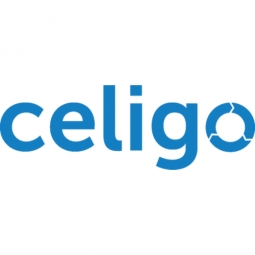Download PDF
Eyebobs Streamlines Operations and Enhances Customer Experience with Celigo
Technology Category
- Application Infrastructure & Middleware - Data Exchange & Integration
- Application Infrastructure & Middleware - Middleware, SDKs & Libraries
Applicable Industries
- Consumer Goods
- Retail
Applicable Functions
- Procurement
- Warehouse & Inventory Management
Use Cases
- Inventory Management
- Leasing Finance Automation
Services
- System Integration
The Challenge
Eyebobs, an eyewear company, was facing several challenges as it expanded its operations. The company was processing hundreds of orders daily from retail, Amazon, and its webstore. However, the process was heavily reliant on manual data entry, which was slow and prone to errors. A full-time order administrator was required to download and manually enter Amazon orders into NetSuite ERP. Additionally, the company's custom integration between its ecommerce storefront and NetSuite was unreliable, leading to additional manual processes and expenses. The company also had a risk-free return policy, but the returns management process was entirely manual and dependent on the customer service team. This was not only time-consuming but also hindered the team from proactively helping customers through more sales.
About The Customer
Eyebobs is an eyewear company founded by Julie Allinson in 2001. The company is based in Minneapolis and has a vision to make reading glasses fun and stylish. Eyebobs' fashionable approach to eyewear has helped it expand its range of functional products to include progressives, single-vision prescriptions, blue light, all-day readers, polarized sunglasses, and other accessories. The company processes several hundred orders a day from retail, Amazon, and its webstore. As the company grew, it faced challenges with manual data entry and unreliable custom integration between its ecommerce storefront and NetSuite.
The Solution
Eyebobs decided to partner with Celigo to streamline its operations. Celigo was chosen for its powerful functionality, ease of setup and use, intuitive design, and library of prebuilt integrations. The company started with five endpoints and first tackled the Salesforce-NetSuite integration challenge. Celigo's guided implementation program was used for this purpose. The team quickly built their first integration and expanded Celigo's use to many other areas in the business, including fulfillment data integrations, data warehouse, Stripe, Paypal, and more. They also expanded to an additional 12 endpoints, including additional data warehousing and project management use cases. The team was able to connect and automate data from a data warehouse without the need for a data engineer.
Operational Impact
Related Case Studies.
.png)
Case Study
Improving Vending Machine Profitability with the Internet of Things (IoT)
The vending industry is undergoing a sea change, taking advantage of new technologies to go beyond just delivering snacks to creating a new retail location. Intelligent vending machines can be found in many public locations as well as company facilities, selling different types of goods and services, including even computer accessories, gold bars, tickets, and office supplies. With increasing sophistication, they may also provide time- and location-based data pertaining to sales, inventory, and customer preferences. But at the end of the day, vending machine operators know greater profitability is driven by higher sales and lower operating costs.

Case Study
Improving Production Line Efficiency with Ethernet Micro RTU Controller
Moxa was asked to provide a connectivity solution for one of the world's leading cosmetics companies. This multinational corporation, with retail presence in 130 countries, 23 global braches, and over 66,000 employees, sought to improve the efficiency of their production process by migrating from manual monitoring to an automatic productivity monitoring system. The production line was being monitored by ABB Real-TPI, a factory information system that offers data collection and analysis to improve plant efficiency. Due to software limitations, the customer needed an OPC server and a corresponding I/O solution to collect data from additional sensor devices for the Real-TPI system. The goal is to enable the factory information system to more thoroughly collect data from every corner of the production line. This will improve its ability to measure Overall Equipment Effectiveness (OEE) and translate into increased production efficiencies. System Requirements • Instant status updates while still consuming minimal bandwidth to relieve strain on limited factory networks • Interoperable with ABB Real-TPI • Small form factor appropriate for deployment where space is scarce • Remote software management and configuration to simplify operations

Case Study
How Sirqul’s IoT Platform is Crafting Carrefour’s New In-Store Experiences
Carrefour Taiwan’s goal is to be completely digital by end of 2018. Out-dated manual methods for analysis and assumptions limited Carrefour’s ability to change the customer experience and were void of real-time decision-making capabilities. Rather than relying solely on sales data, assumptions, and disparate systems, Carrefour Taiwan’s CEO led an initiative to find a connected IoT solution that could give the team the ability to make real-time changes and more informed decisions. Prior to implementing, Carrefour struggled to address their conversion rates and did not have the proper insights into the customer decision-making process nor how to make an immediate impact without losing customer confidence.

Case Study
Digital Retail Security Solutions
Sennco wanted to help its retail customers increase sales and profits by developing an innovative alarm system as opposed to conventional connected alarms that are permanently tethered to display products. These traditional security systems were cumbersome and intrusive to the customer shopping experience. Additionally, they provided no useful data or analytics.







